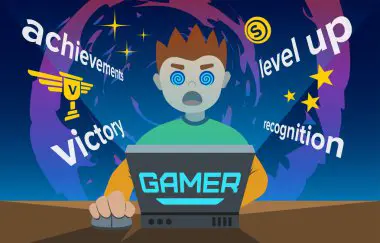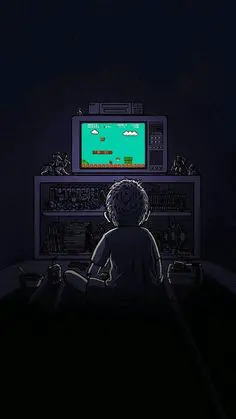
Reclaiming Control: Effective Strategies for Gaming Addiction Recovery
- Admin
Overcoming gaming addiction requires dedication, resilience, and a multifaceted approach to recovery. By implementing effective strategies, individuals can regain control over their gaming habits and rebuild their lives. In this article, we'll explore a range of recovery strategies tailored to help individuals break free from the grips of gaming addiction and foster a healthier relationship with gaming.
1. Setting Clear Boundaries:
Establishing clear boundaries around gaming is essential for managing addiction and promoting balance in life. Set specific limits on gaming time, designate gaming-free zones or times, and prioritize other activities such as hobbies, exercise, and socializing. By creating structure and boundaries, individuals can reduce the time and energy devoted to gaming and cultivate a more balanced lifestyle.
2. Identifying Triggers and Cravings:
Understanding the triggers and cravings that contribute to gaming addiction is a crucial step in recovery. Reflect on the situations, emotions, or thoughts that prompt excessive gaming behavior and develop awareness of these triggers. By recognizing triggers early on, individuals can implement coping strategies to manage cravings and prevent relapse.
3. Developing Coping Strategies:
Developing healthy coping strategies is essential for managing stress, boredom, and negative emotions without resorting to gaming. Explore alternative activities such as exercise, mindfulness practices, creative pursuits, and socializing with friends and family. By finding healthy outlets for stress and emotions, individuals can reduce the urge to escape into gaming as a coping mechanism.
4. Seeking Professional Help:
Seeking professional help from therapists, counselors, or support groups specializing in addiction treatment can provide valuable guidance and support on the journey to recovery. Therapists can help individuals explore underlying issues contributing to gaming addiction, develop coping skills, and create a personalized treatment plan. Additionally, support groups offer peer support, accountability, and encouragement from others who understand the challenges of addiction.
5. Building a Support Network:
Building a strong support network of friends, family members, and peers is essential for recovery from gaming addiction. Surround yourself with supportive individuals who understand your struggles and are committed to helping you succeed. Lean on your support network for encouragement, guidance, and accountability during challenging times.
6. Practicing Self-Care:
Prioritizing self-care activities such as getting enough sleep, eating a balanced diet, exercising regularly, and practicing relaxation techniques is essential for overall well-being and recovery. Taking care of physical, emotional, and mental health needs strengthens resilience, reduces stress, and enhances coping abilities, making it easier to resist the temptation to game excessively.
7. Setting Goals and Celebrating Progress:
Setting realistic goals for recovery and celebrating progress along the way is essential for maintaining motivation and momentum. Break down larger goals into smaller, manageable steps and track your progress over time. Celebrate achievements, no matter how small, and use them as reminders of your strength and progress on the journey to recovery.
Conclusion:
Recovering from gaming addiction is a challenging but achievable goal with the right strategies and support. By setting clear boundaries, identifying triggers, developing coping strategies, seeking professional help, building a support network, practicing self-care, and setting goals, individuals can reclaim control over their lives and build a healthier relationship with gaming. Remember, recovery is a journey, and every step forward is a victory worth celebrating.
